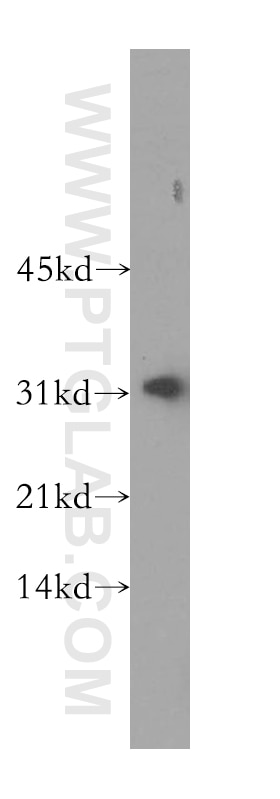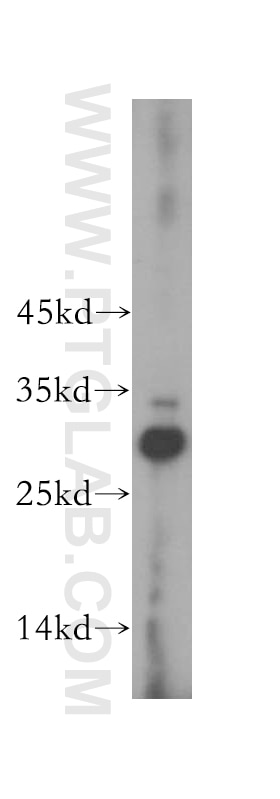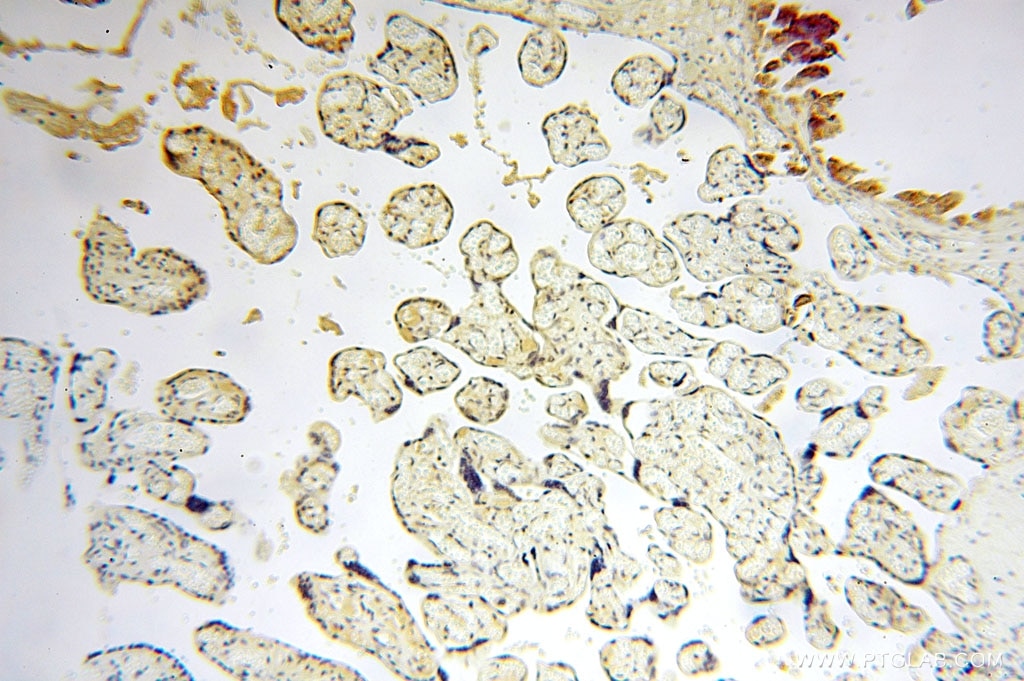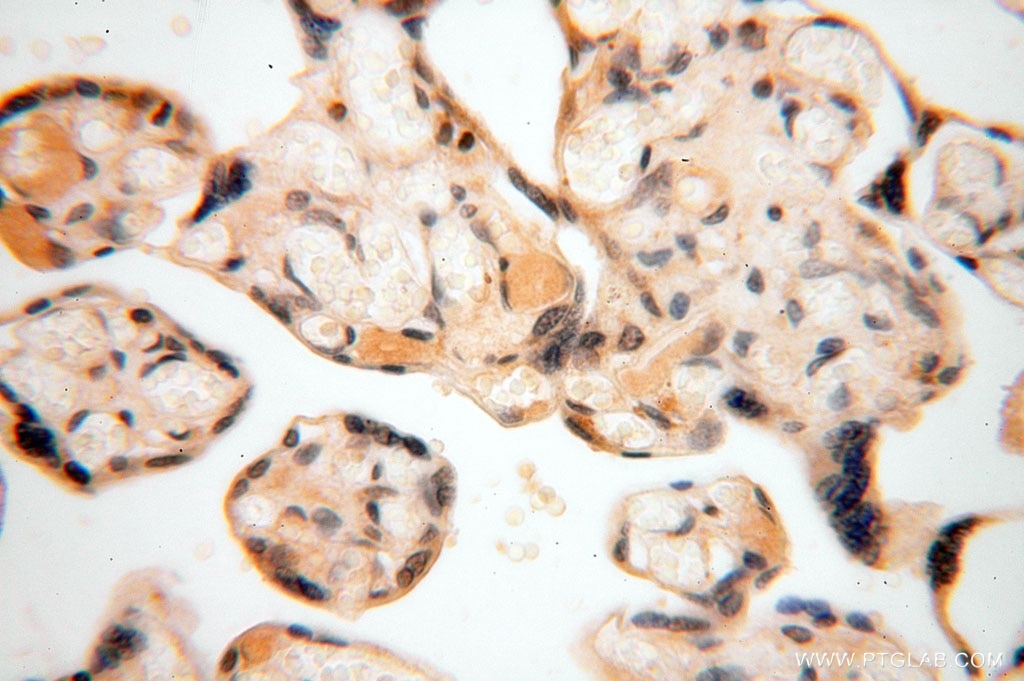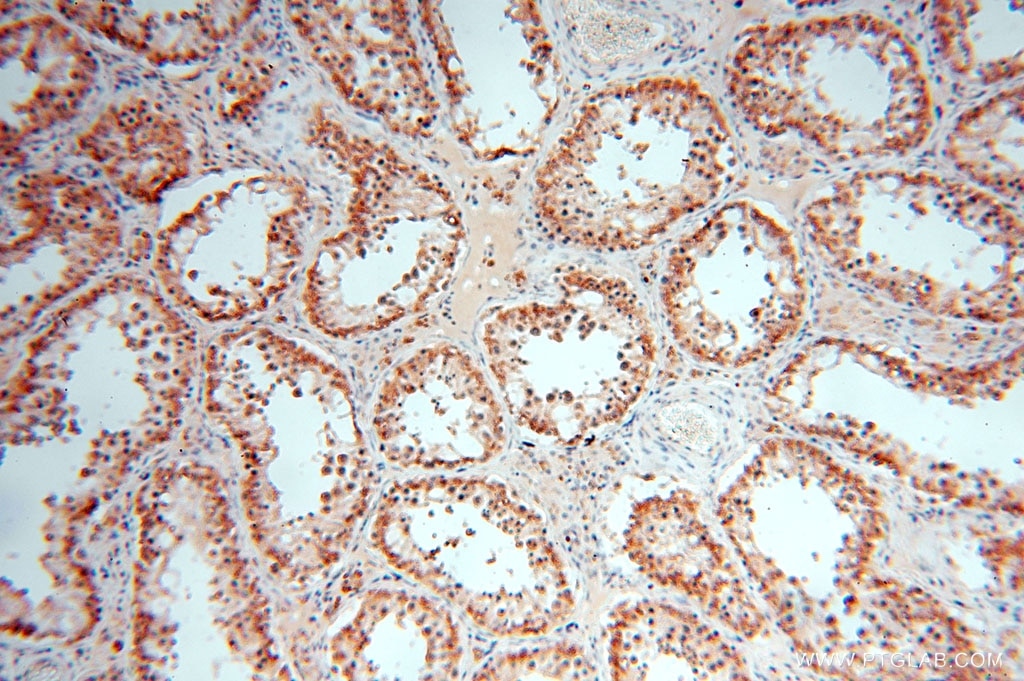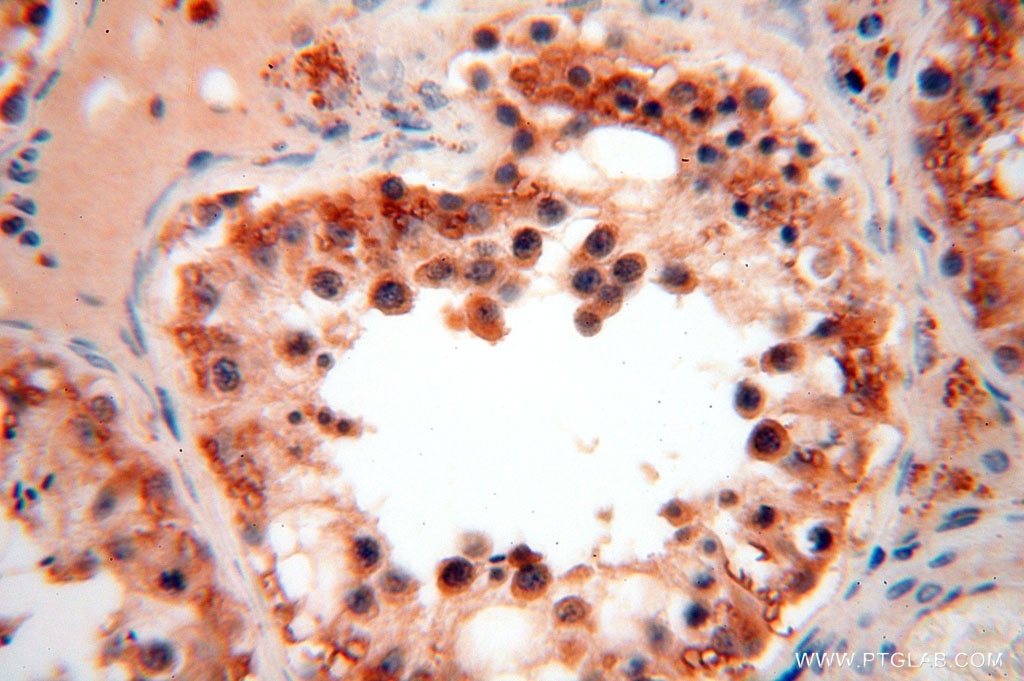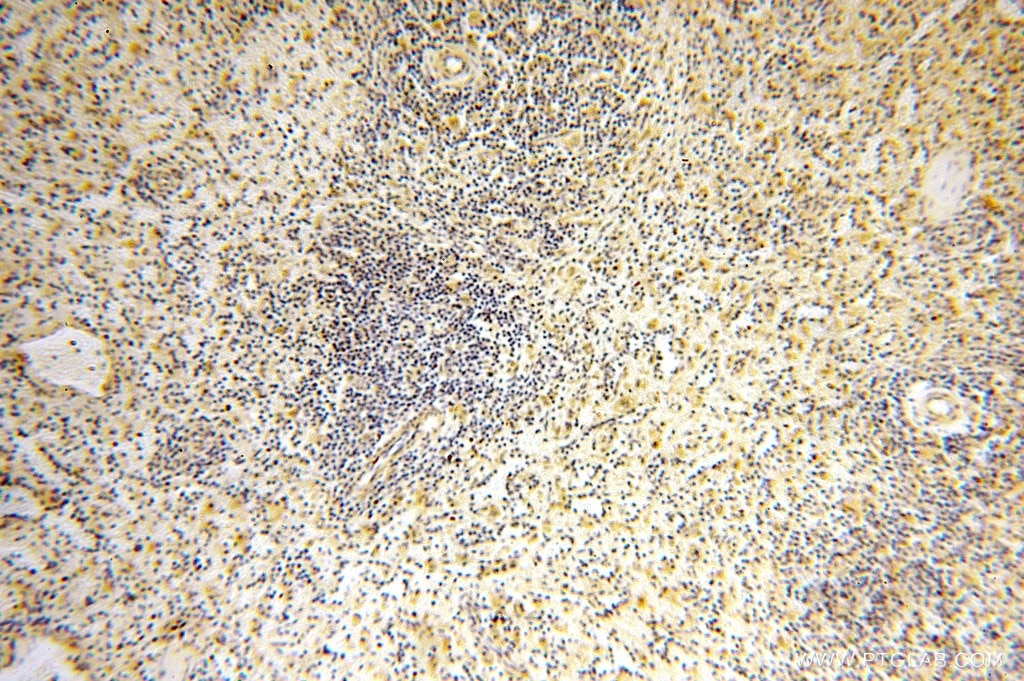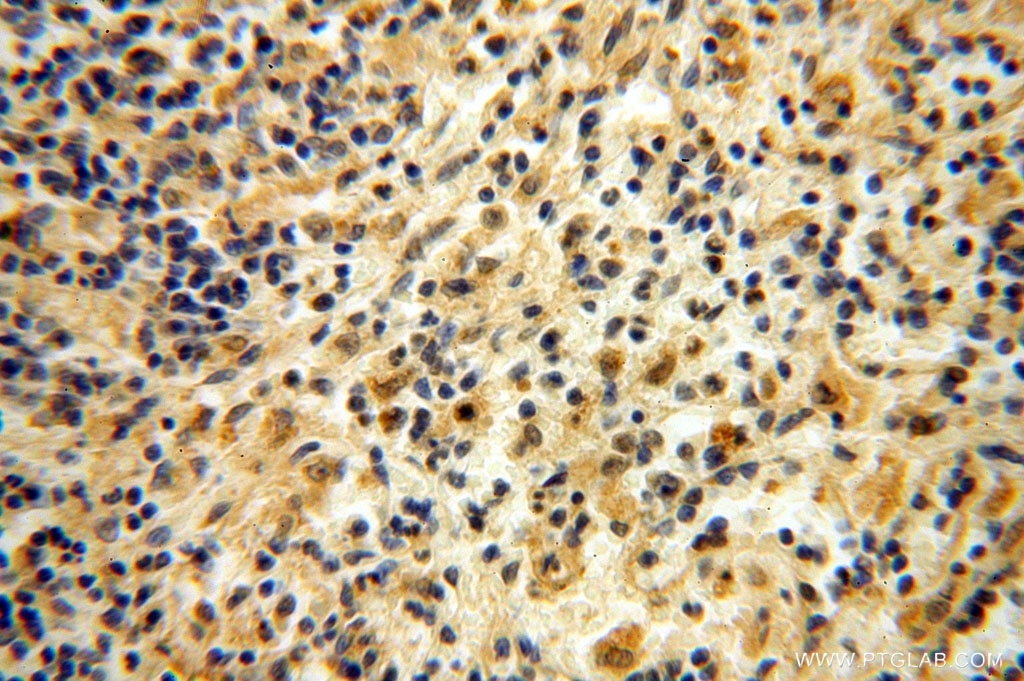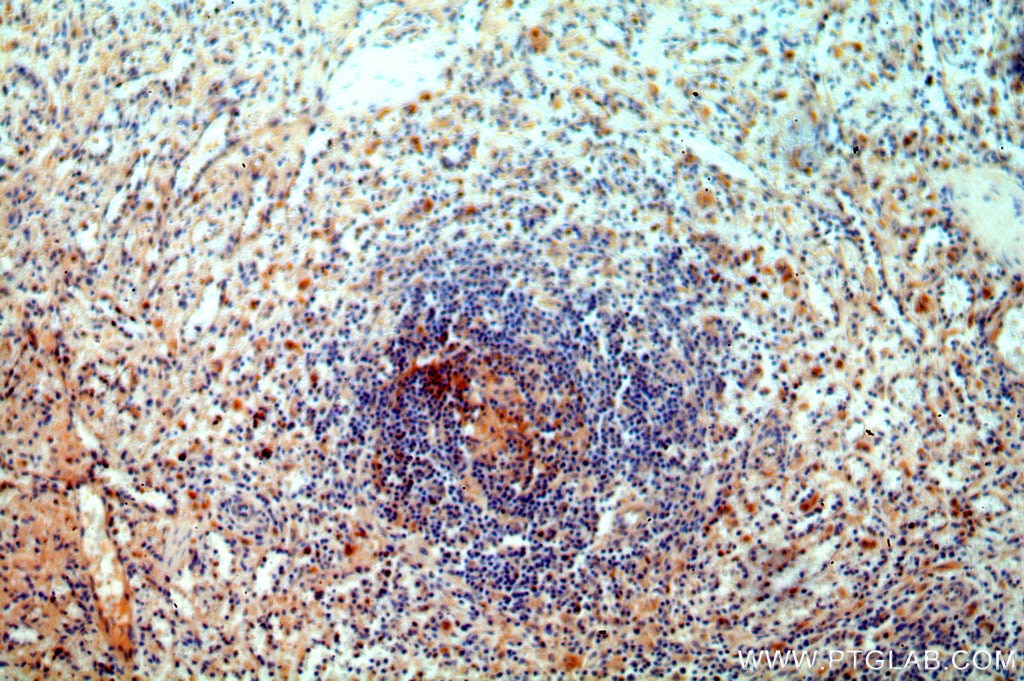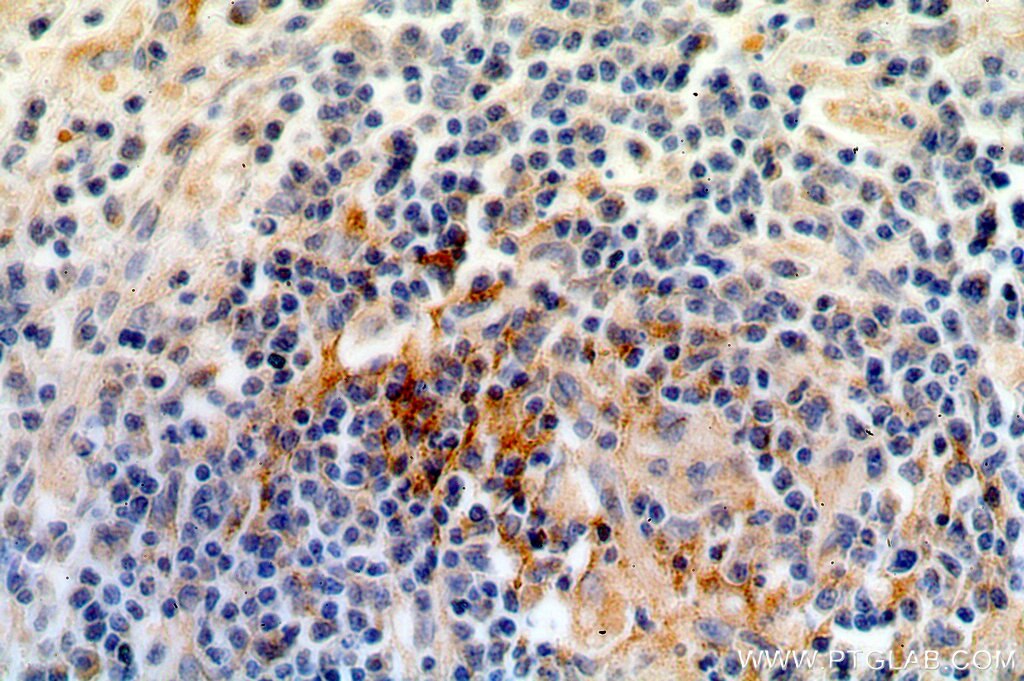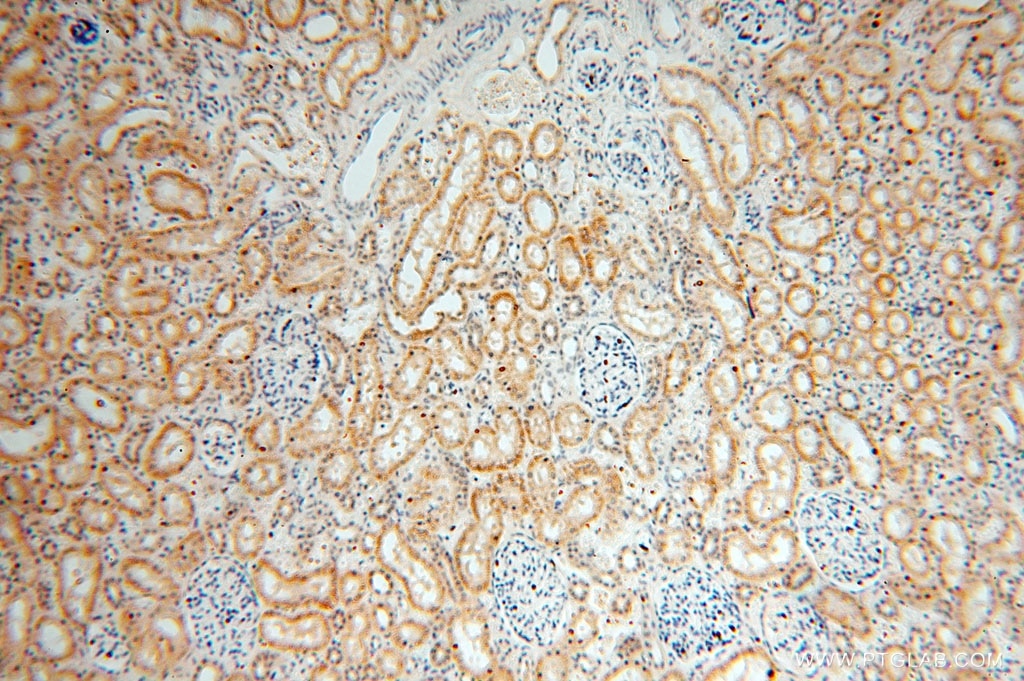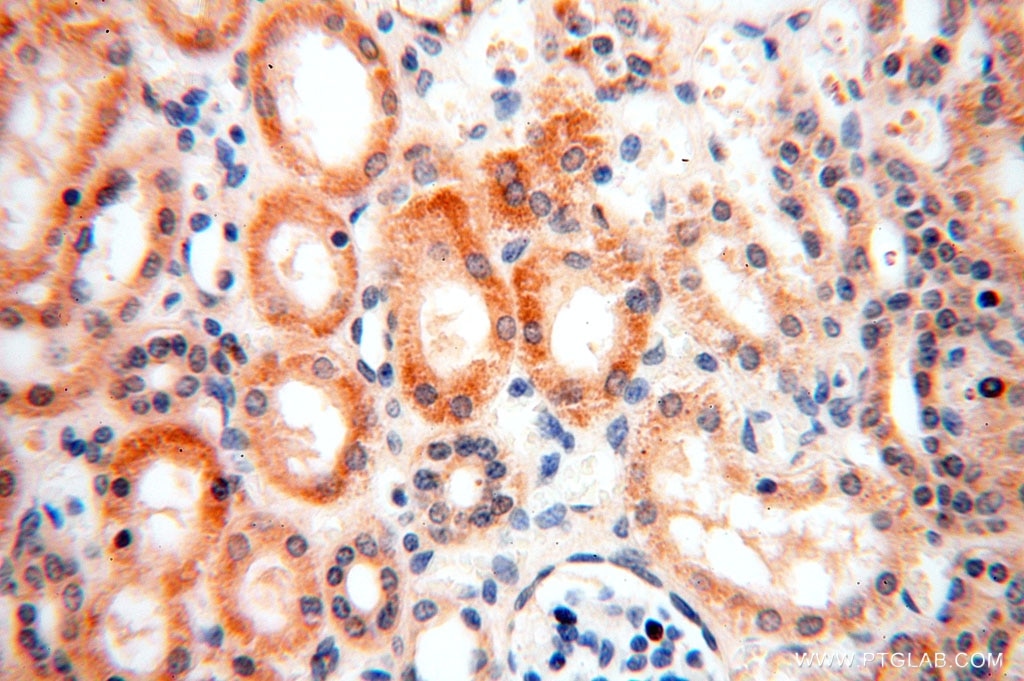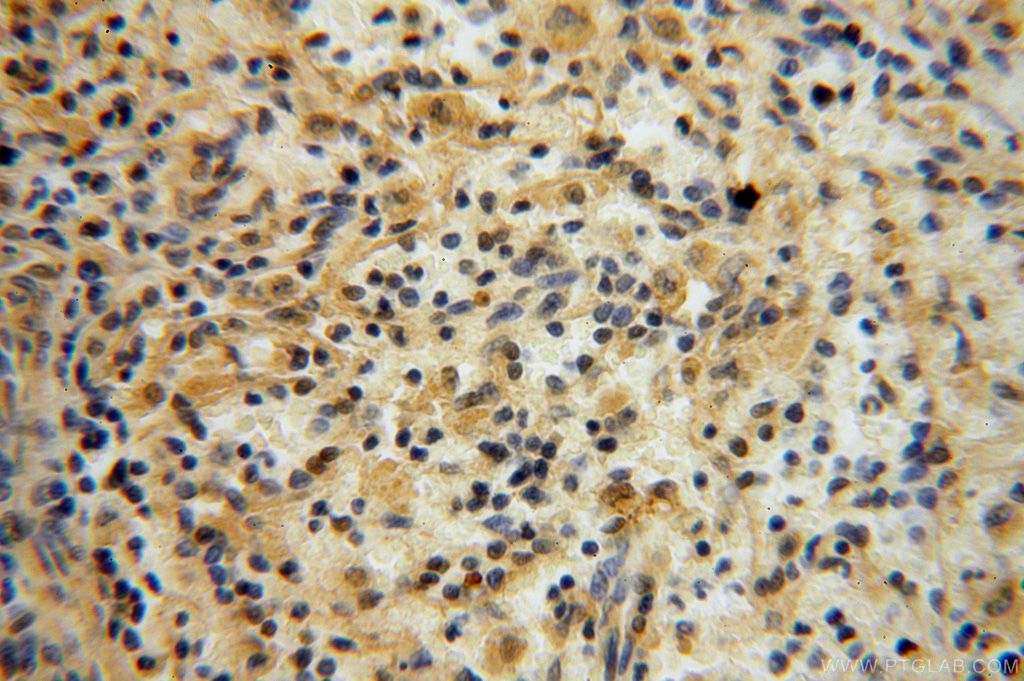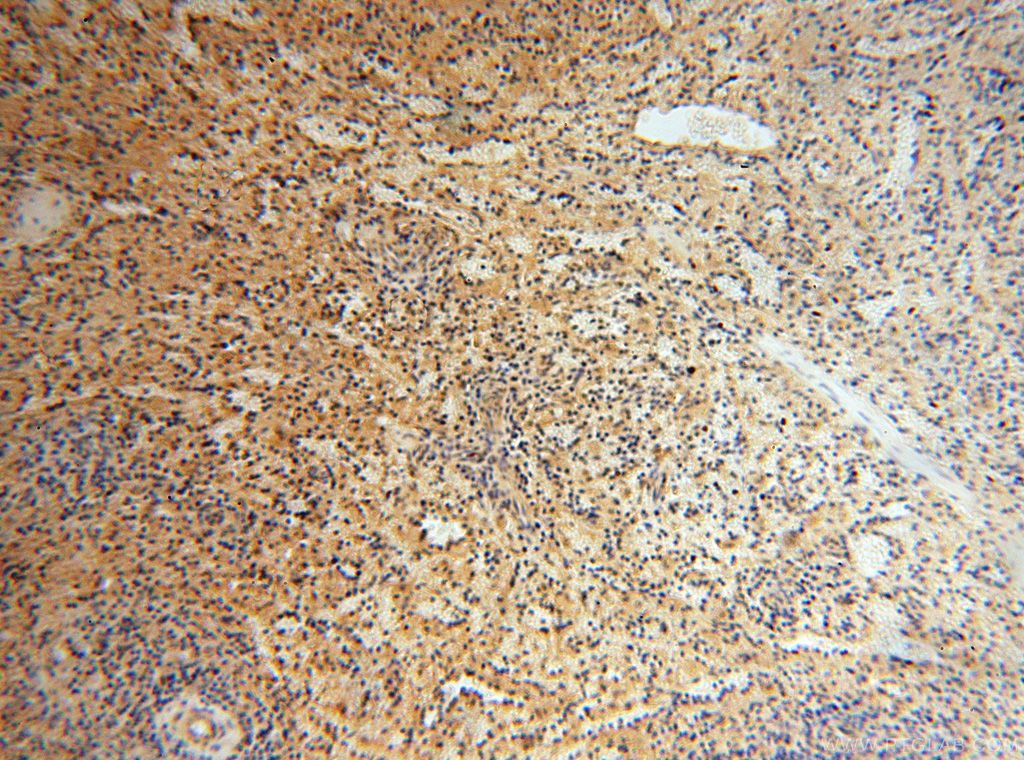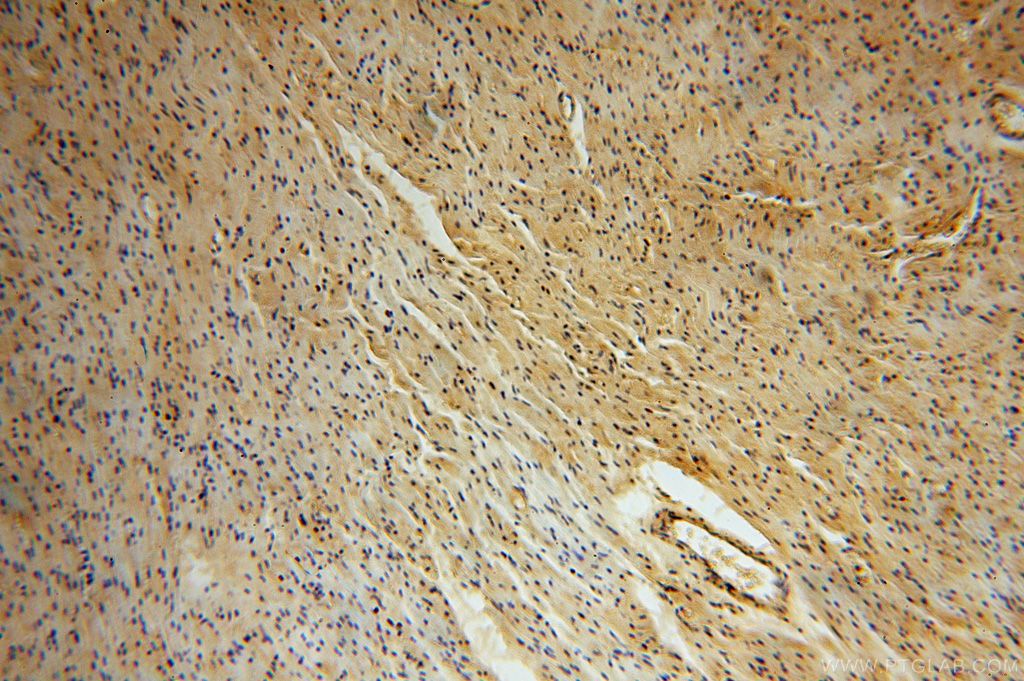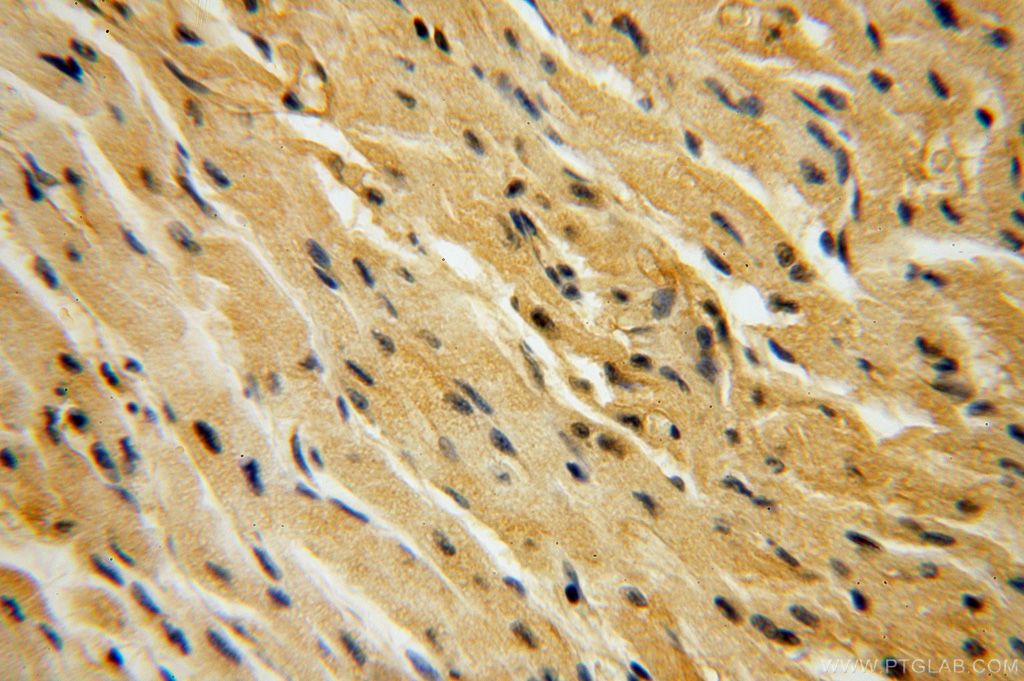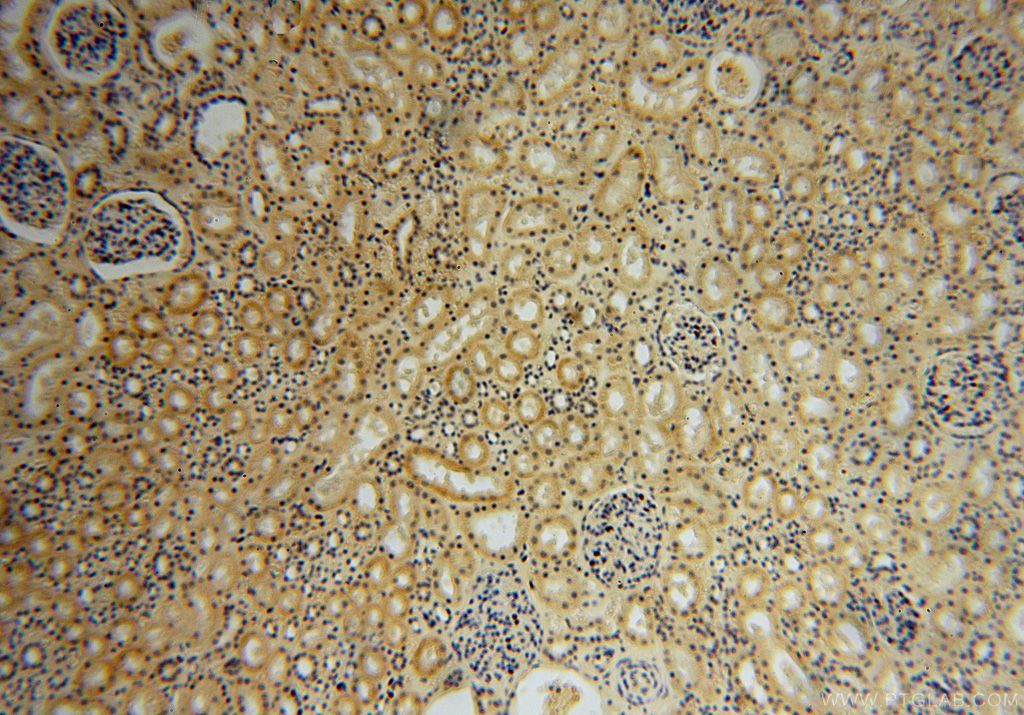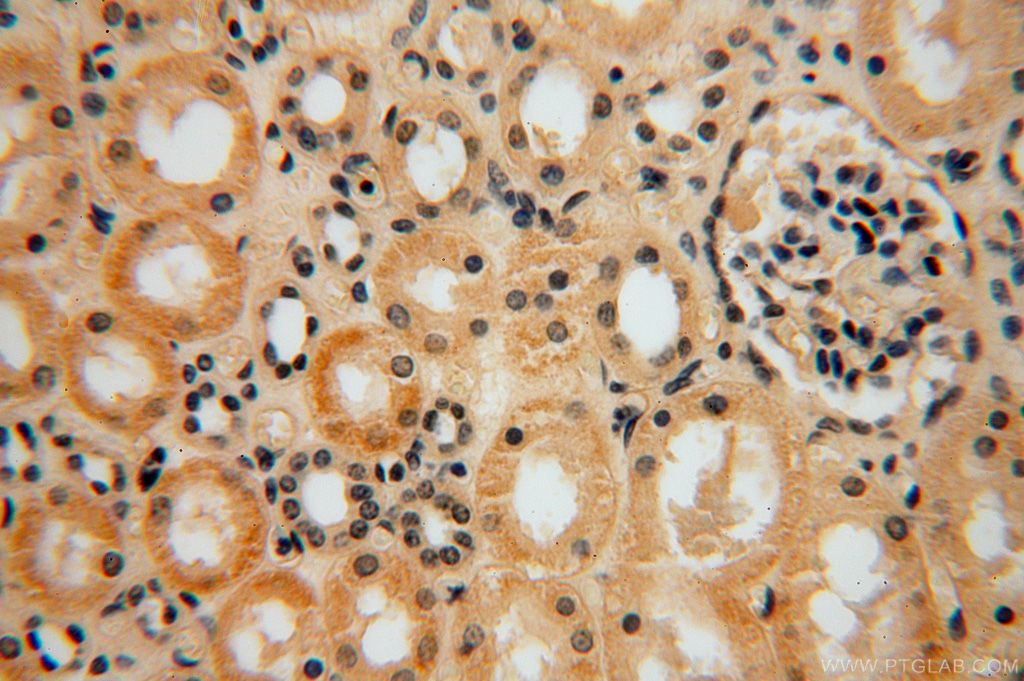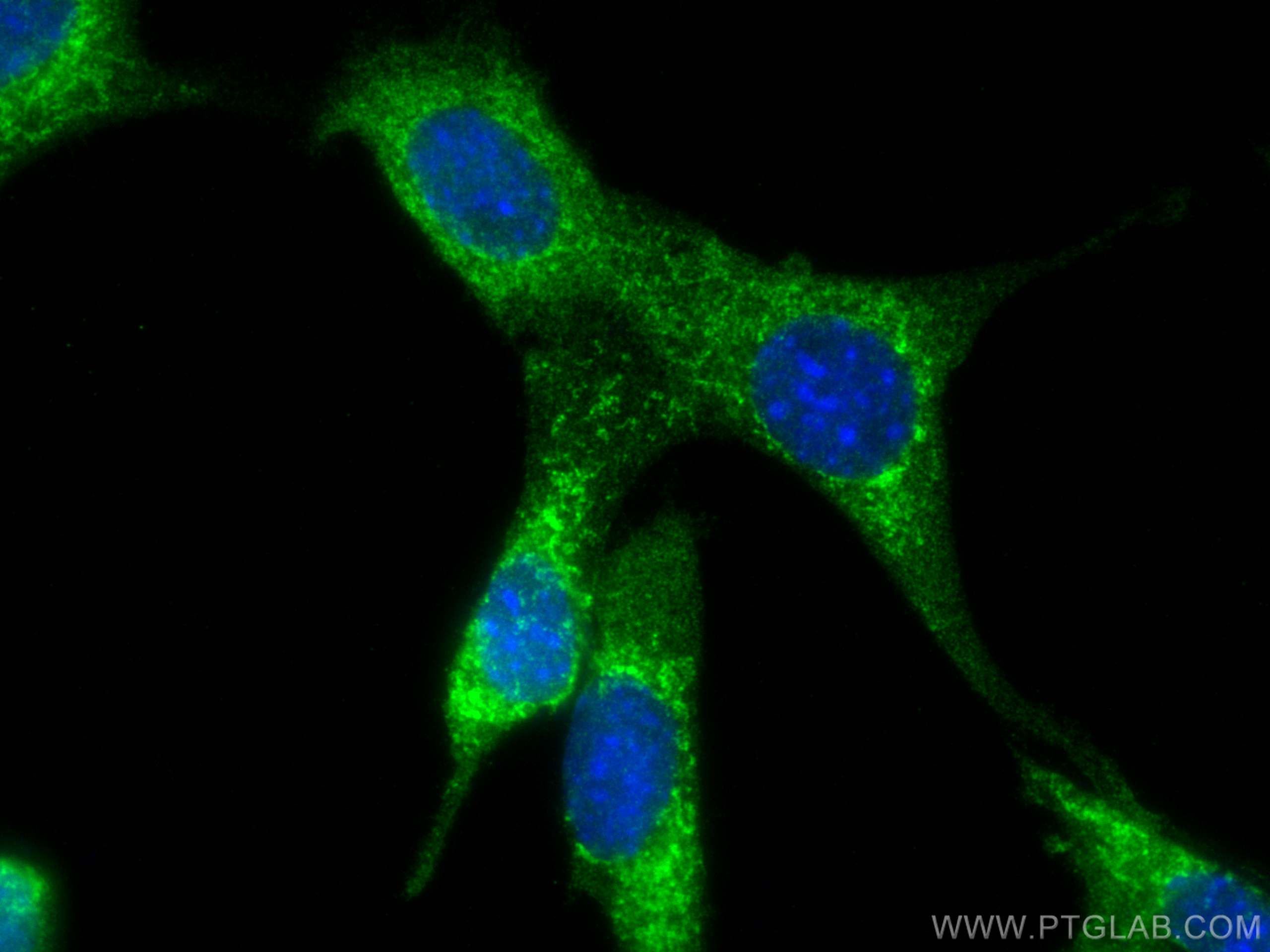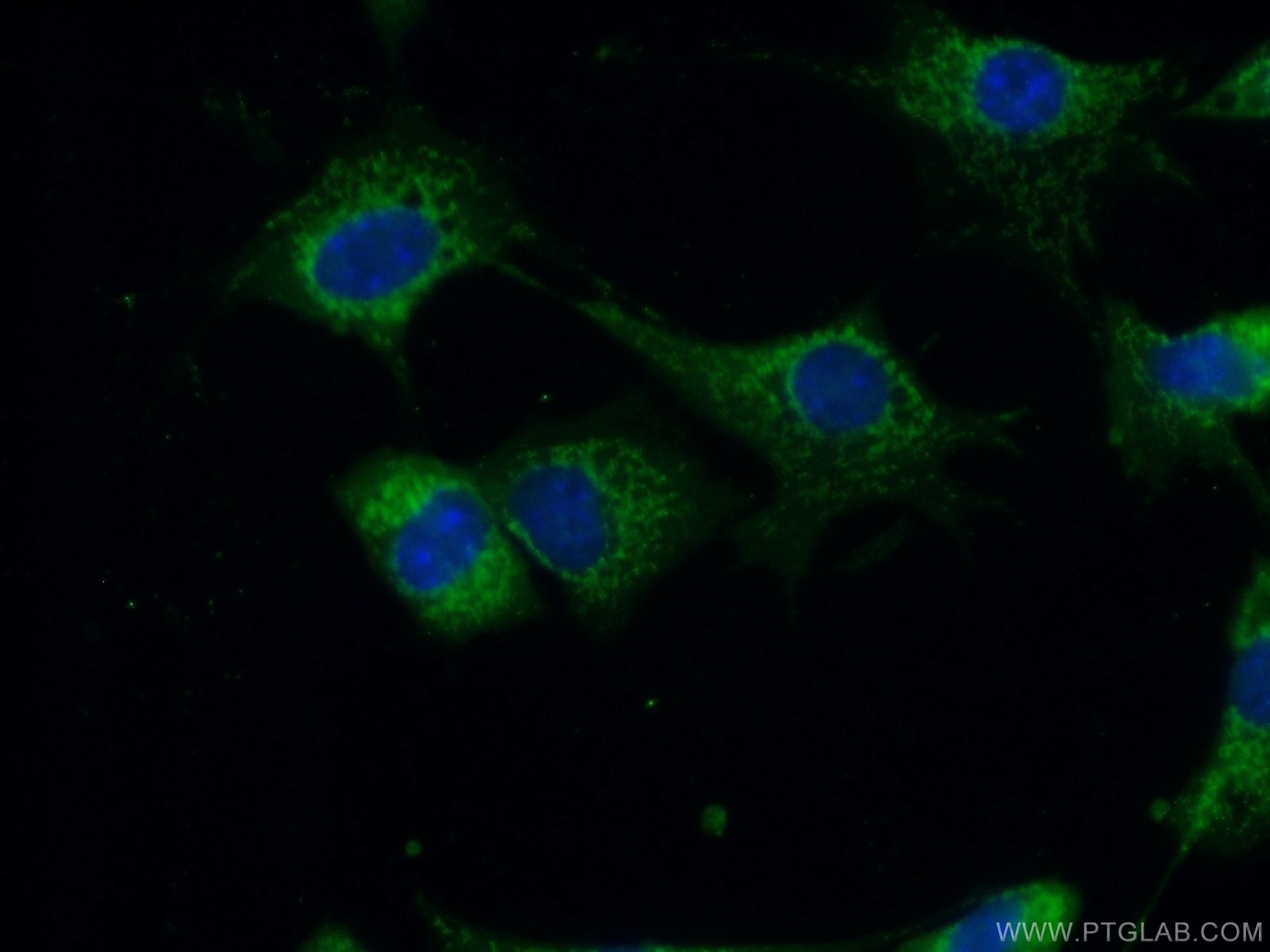Anticorps Polyclonal de lapin anti-CA13
CA13 Polyclonal Antibody for WB, IHC, IF/ICC, ELISA
Hôte / Isotype
Lapin / IgG
Réactivité testée
Humain, rat, souris
Applications
WB, IHC, IF/ICC, ELISA
Conjugaison
Non conjugué
N° de cat : 16696-1-AP
Synonymes
Galerie de données de validation
Applications testées
| Résultats positifs en WB | cellules NIH/3T3, tissu de muscle squelettique de souris |
| Résultats positifs en IHC | tissu placentaire humain, tissu cardiaque humain, tissu rénal humain, tissu splénique humain, tissu testiculaire humain il est suggéré de démasquer l'antigène avec un tampon de TE buffer pH 9.0; (*) À défaut, 'le démasquage de l'antigène peut être 'effectué avec un tampon citrate pH 6,0. |
| Résultats positifs en IF/ICC | cellules NIH/3T3, |
Dilution recommandée
| Application | Dilution |
|---|---|
| Western Blot (WB) | WB : 1:500-1:3000 |
| Immunohistochimie (IHC) | IHC : 1:20-1:200 |
| Immunofluorescence (IF)/ICC | IF/ICC : 1:50-1:500 |
| It is recommended that this reagent should be titrated in each testing system to obtain optimal results. | |
| Sample-dependent, check data in validation data gallery | |
Applications publiées
| WB | See 1 publications below |
| IF | See 1 publications below |
Informations sur le produit
16696-1-AP cible CA13 dans les applications de WB, IHC, IF/ICC, ELISA et montre une réactivité avec des échantillons Humain, rat, souris
| Réactivité | Humain, rat, souris |
| Réactivité citée | Humain, souris |
| Hôte / Isotype | Lapin / IgG |
| Clonalité | Polyclonal |
| Type | Anticorps |
| Immunogène | CA13 Protéine recombinante Ag10086 |
| Nom complet | carbonic anhydrase XIII |
| Masse moléculaire calculée | 262 aa, 29 kDa |
| Poids moléculaire observé | 30 kDa |
| Numéro d’acquisition GenBank | BC052602 |
| Symbole du gène | CA13 |
| Identification du gène (NCBI) | 377677 |
| Conjugaison | Non conjugué |
| Forme | Liquide |
| Méthode de purification | Purification par affinité contre l'antigène |
| Tampon de stockage | PBS with 0.02% sodium azide and 50% glycerol |
| Conditions de stockage | Stocker à -20°C. Stable pendant un an après l'expédition. L'aliquotage n'est pas nécessaire pour le stockage à -20oC Les 20ul contiennent 0,1% de BSA. |
Informations générales
Carbonic anhydrases (CAs) are zinc-containing metalloenzymes that catalyze the reversible hydration of carbon dioxide. The mammalian α-CA gene family has been reported to include at least eleven enzymatically active isoforms with different structural and catalytic properties. Four of the active CA isozymes are cytosolic (CA I, II, III, and VII), four are membrane-associated(CA IV, IX, XII, and XIV), two are mitochondrial (CA VA and VB), and one is a secretory form (CA VI). CA13 is a cytosolic protein that may play a role in embryogenesis and perturbation of its function by genetic modification could potentially lead to developmental abnormalities(PMID:14600151).
Protocole
| Product Specific Protocols | |
|---|---|
| WB protocol for CA13 antibody 16696-1-AP | Download protocol |
| IHC protocol for CA13 antibody 16696-1-AP | Download protocol |
| IF protocol for CA13 antibody 16696-1-AP | Download protocol |
| Standard Protocols | |
|---|---|
| Click here to view our Standard Protocols |
Publications
| Species | Application | Title |
|---|---|---|
BMC Med Genomics Single-cell RNA-sequencing of stria vascularis cells in the adult Slc26a4-/- mouse | ||
Anal Chem Spike-In Proteome Enhances Data-Independent Acquisition for Thermal Proteome Profiling |
